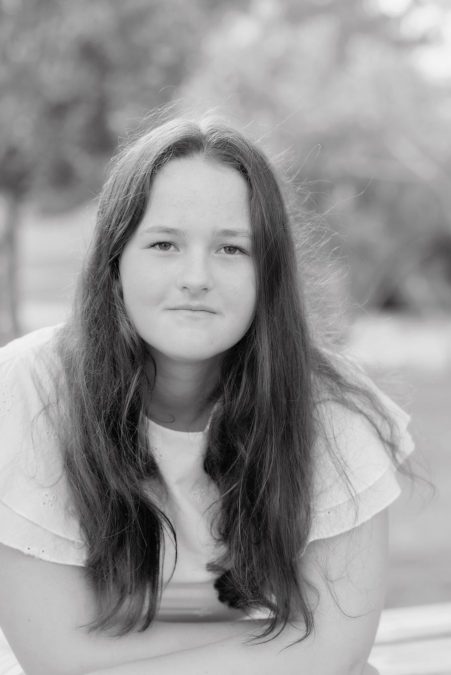In 2017, Dorothy Scarborough attended the Princeton University’s College Horizons Program where she lived with other higher education-bound Native Americans from around the country. This year, her sister Helen followed the same path at a College Horizon’s program at the University of Pennsylvania, joining with American Indians, Native Alaskans and Native Hawaiians to determine the best route through higher education. The sisters are members of Ogee, Weld and Cummings families through their grandmother Walterene Brant Scarborough.
Helen, a high school junior from New York, joined 80 other students and 50 college admission officers to learn about the college admission process and its relation to her Native American heritage through daylong workshops and activities. She discussed her experiences with the Hownikan.
What were the workshops like?

“I participated in both large and small group workshops, which ranged from the college admission process to what it’s like to identify as a Native American student on a college campus. In one workshop, the entire program came together and then divided up into groups based on how each individual identifies with their tribe in their personal lives. As small groups, we shared our own experiences of what it is like as a Native American student in our hometown communities and the struggles we face due to our cultural identity. We then came together as a whole group and shared all of the ideas we had come up with and then reflected on how we can improve not only our own experience in college, but also how the Native population is perceived on these campuses and within society in general.
“Another workshop I participated in was learning about financial aid for colleges and how we can find and apply for scholarships. We were shown multiple sites that offer many scholarship opportunities, and we then learned the best times and ways to apply.
“A third workshop I was involved in was made up of about 10 other students from around the country who would be entering 11th grade this fall. Within this group, we came together to learn about how college applications are read by college admissions officers and the process they go through in understanding each applicant. This activity was probably both my favorite and the one I found to be most informative. I was really able to understand how each aspect of an application factors into the ultimate decision of whether or not you are admitted to a college. It allowed me to see how there is not one particular part of your application that is most important or valued more over others.”
Were there any tips you had as a participant for those in search of a college?
“Look first to the financial contribution package a college offers. I learned that each institution offers different aid packages, whether they be a full scholarship or just some extra money to help with living expenses. Complete your college research with this in mind; you will be able to make a list of schools that are most realistic financially and academically for you as a student. I would also recommend that students keep a spreadsheet of the colleges they are interested in along with both positive and negative aspects of each school. You will be able to see which colleges were best suited to your personal preferences.”
What was it like getting to know other Native American students?
“As someone who lives in a city quite far away from Shawnee, getting to learn from other Native students was extremely eye opening. I met teenagers from all over the country with extremely different lives from my own. I met many living on reservations, while also meeting many who were extremely active in tribal meetings and rituals in their own hometowns. I attend the family gatherings for CPN District 2 each year, which Eva Marie Carney organizes, and I read prayers in church in Potawatomi; but I do not know any other CPN members outside of my own family.
“I think the most amazing aspect of this opportunity was getting to meet others who identified with the issues I face as a Native American high school student in our present-day society. Throughout my high school experience, I have endured others teasing me about heritage — it isn’t real or how I don’t look ‘Native’ enough to call myself a Potawatomi. I used to think I was the only one struggling with this dilemma. Through this opportunity to meet other students, I learned that many have encountered such criticism and that I really am not alone.”
Did the program help narrow down want you want to do in terms of an academic or career focus?
“I think the program helped me to not only confirm my hope to work in medicine someday, but it also opened my eyes to learning about a new topic while in college and possibly a new major altogether: Native Studies. Many schools I spoke with while at College Horizons offer a Native Studies program, major or minor, with which I could pair a study in biology to learn more about the study of health and medicine within Native communities throughout history. I would really encourage high school students who are considering college to look into College Horizons.”
Citizen Potawatomi members considering higher education opportunities, including College Horizons, can access more information and assistance from the CPN Department of Education.
